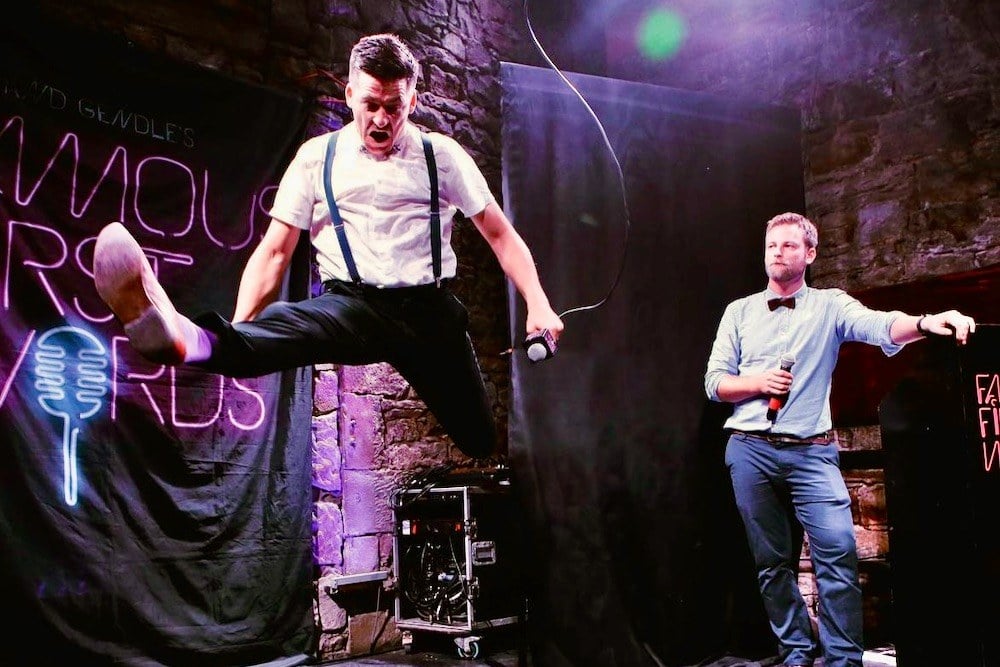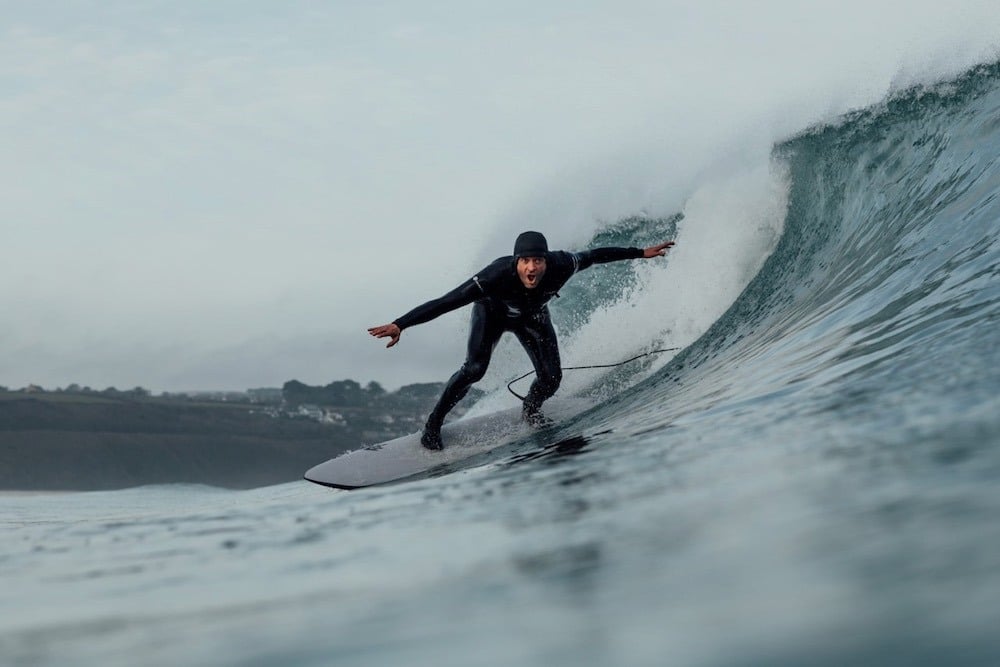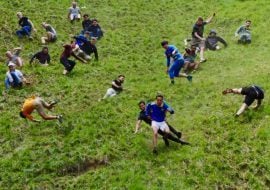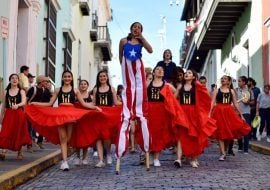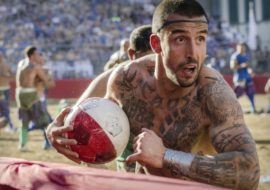Trail Running: Edward Chapman
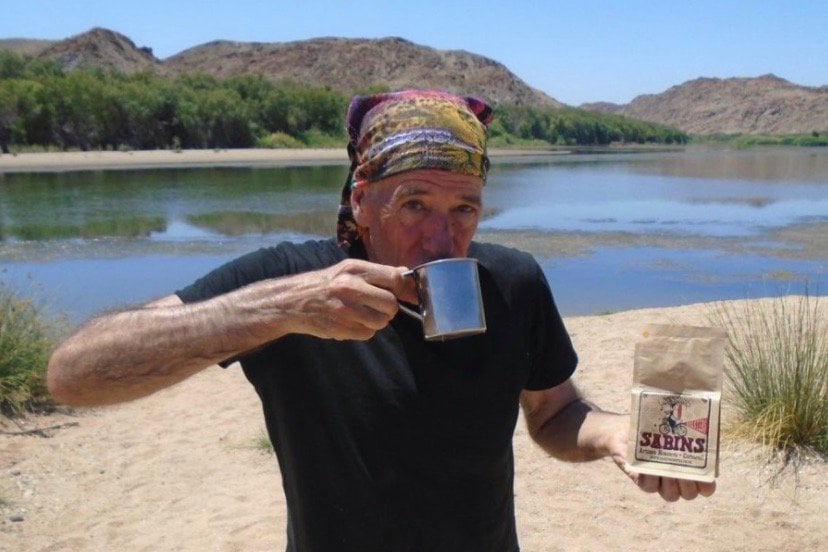

Episode 6: Podcast with Edward Chapman, the Trailrunningman – Trail runner, speaker, writer and adventurer
In this episode Oli Russell-Cowan chats to trail runner Edward Chapman. Starting to run at the age of 40, Edward got into trail running. He’s completed over 200 marathons and ultra-marathons. His biggest achievement is completing the Kalahari Augrabies Extreme Marathon. Not just once, Edward completed this 250km desert race 12 times! Tune in for some of his best trail running stories.
In their conversation Edward dives deep on why he started running at 40, his favorite runs, how he trains and how nutrition and pacing matters, especially on longer runs.
The main takeaway of the chat was to focus on your own goals and enjoy the journey. Go for speed if you’re young, you can increase the distance when you’re older.
‘I started running when I was 40. Before that I was kind of fat, unfit and had health problems. And my doctor said get some exercise or you won’t see your kids grow up.’
Listen to the podcast:
Dive in and listen to this episode on Apple Podcast and Spotify.
Read the transcript:
Rad Season: Hi guys, it’s Oli from Rad Season and I’m joined today by trail runner, Edward Chapman, who has competed in over 100 marathons and ultramarathons, and that also includes finishing the Kalahari Extreme Marathon 10 times, which is absolutely incredible.
Ed, thanks for joining us today.
Edward: It’s a pleasure. Can I update you on the bio. It’s now over 200 marathons and ultramarathons. I’ve actually completed the Kalahari Augrabies Extreme Marathon 12 times now.
Oli: Wow. So I should have done my homework before that.
Edward: I should have updated my bio on your website.
Oli: That’s incredible. Whereabouts are you at the moment?
Edward: I’m at home in Cornwall. In the South West of England right down at the pointy part. I’m about 15 miles away from Land’s End. So the furthest you can go.
Oli: How’s everything going at the moment? Have you been able to go running?
Edward: It’s really a weird world. I can go out running.
I’ve given up using a car due to this climate change thing. I rely on public transport. Of course now they’re saying don’t use public transport. So I’m tending to do exactly the same run almost every single day. Whereas normally in the old days, I drive out to the coast and do a run on the coast somewhere, or I get a bus and run back. Now I’m just running from the house and running back to the house. So it’s roughly the same bit of territory all the time.

Oli: What distance are you doing?
I’m at the moment I’m not doing very much. I’ve decided to concentrate on stuff I don’t normally do. Something called, ‘speed work’, whatever that is. I’d love to go and run on Dartmoor and do long runs around Bodmin. I can’t do that so I thought well, do something a bit different. So I’m kind of concentrating on shorter runs. Trying to get my speed going a bit. Just doing different things whilst I’ve got the opportunity.
Oli: You started running fairly late. Is that right?

Running was about the only thing you could do that didn’t involve planning and meeting up with people. So I kind of jogged in the woods when no one was looking.
Oli: Did you start trail running bit by bit and then deciding, Okay, I’m going to do a marathon now.
Edward: When I first started way back in what? I’m 65 now, so 25 years ago, there wasn’t trail running. It was all road running. So I entered a road race, the Hastings10k. Then I did more and more. Then I thought I’ll read a book about it, to see what I’m doing is right or wrong. I read the word ,’marathon’ in there. I’ve only done a 10k by then I thought, you know what, I can do that.
I followed a marathon training plan. I was going to do the Boston Marathon in America to raise money for charity. I was really worried that I wouldn’t finish and I was going at it intending to raise a lot of money. So I sneaked in a run in September, I did the New Forest Marathon in England, just so I knew I could do it. Then I did the fundraising and then I did the Centenary Boston Marathon.
Oli: After the Boston Marathon, was that something that you thought, okay, right, this is for me?
Edward: No, that was going to be my last marathon. I got put off because I felt really good having done another marathon within six months. I went out with a group with a couple of guys on the plane, they were coming back to do the London Marathon, which is a week after Boston actually six days after Boston. So they were doing two marathons in six days!
I thought, well, they’re weird. Then I got really depressed after Boston, and I realized that I hadn’t got a goal. So I then started doing more marathons. Then I kind of thought about those guys. I heard about this thing called the Treble: You could do Beachy Head on Saturday, Snowdon on Sunday and the Dublin Marathon on Monday, which was a bank holiday. They’ve changed the dates now, so you can’t do it. I thought three marathons in a weekend. Awesome. So I went and did that.

Comrades Marathon
It kind of snowballed from there. And then someone told me about the Comrades Marathon in South Africa, which is 56 miles. And I thought, yeah, I can do that. I almost couldn’t. I became hooked on the Comrades. I don’t know if you know anything about the Comrades Marathon in South Africa. It’s an institution over there. It’s so important in South African history that Nelson Mandela, in his inaugural speech, mentioned the Comrades Marathon. It’s that important to them. So I went and did the Comrades Marathon quite a few times. And then all of a sudden I discovered trail running and I haven’t been back road running since.
Oli: When was the first time you did Comrades?
Edward: 1999.
Oli: Was it still the same sort of crowds or has it grown since?
Edward: That was just the start of it getting big. I think there were about 12,000 people when I first ran it. I think now it’s about 18,000.
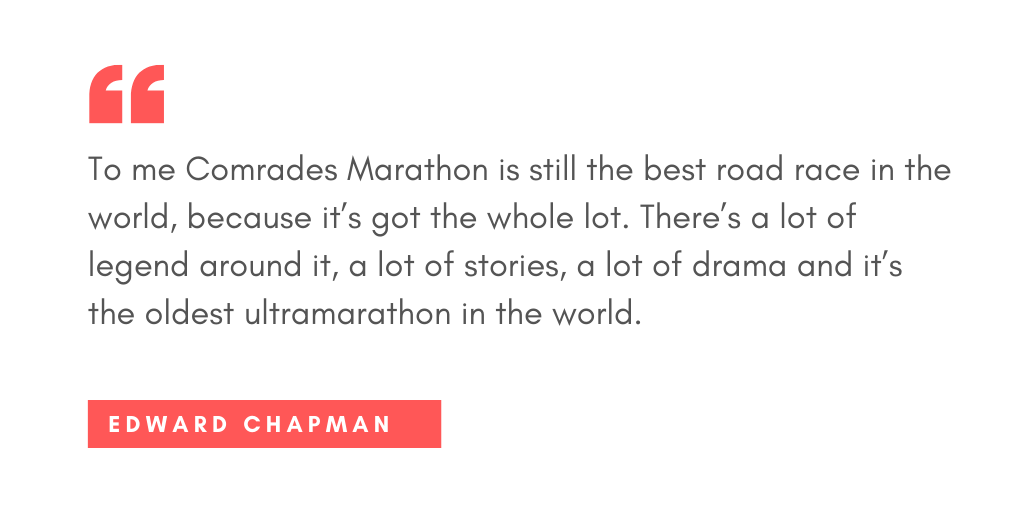
Everyone in South Africa knows someone that’s run the Comrades so the supporters all know about running. So when they say something, it’s not like you get here when you run in London. They are so generous if you’re in trouble they will run with you.
I suffered one time with an injury. I didn’t finish but a little old lady with flip flops ran with me to get me to the finish. So I tell everyone, that’s one of the races you really must go and experience. Unfortunately, it’s been canceled this year.
Oli: After Comrades where did you then go from there?
Edward: I went and did the Two Oceans Marathon in Cape Town.
I bumped into the organizers of Addo Trail Run in an elephant park in South Africa. They said come and do that run when I met them a few months later when they came over to England to do a multi-day race in England, which no longer exists, it was called the Marathon of Britain. We became good friends.
I went and did the 50-mile trail run in the Addo Elephant Park, which was the most beautiful run I have ever done. It still counts as the best single day of racing I’ve ever done. Then they said, Oh, you must come and do the one in the Kalahari. I met them in April 2006 and in 2007 I was running through the Kalahari Desert. It was just fantastic. I loved it.

Kalahari Augrabies Extreme Marathon
Oli: The Kalahari Marathon is quite a bit smaller in terms of number of runners in comparison to the Marathon des Sables.
Edward: Marathon des Sables is now getting over 1,000 entrances. Kalahari is limited to 100 because it goes through a very sensitive environmental area. They have never got to the hundred yet. I think the most they’ve had is 75 people. So you get to know everyone. When I did the Marathon Des Sables I only met the guys in my tent. Whereas in the Kalahari because you are in these open gazebos all together you meet everyone, you talk to everyone. I’ve kept in touch with every single person I met on the Kalahari. There’s only one person from the Marathon des Sables that I’ve kept in touch with. So that’s the difference. To me that is what I like.

The Kalahari is a little bit tougher, but I think you know, for people that want to do that big adventure thing and brag down the pub and stuff. Yeah, the MDS is probably it. If you want a really nice experience, enjoy nature, enjoy being with some really nice people then go into the Kalahari or some of the other races that are about. There are lots of other races.
Oli: What moments from the Kalahari over the years have stood out?
Edward: I think every year there’s a kind of special moment. The first one I can remember, Day 1 I almost didn’t finish, that was a bit special. And then when I finished that was really special. Other times it’s been the people that have made it.
One year I was asked to help a guy to finish because he tried to go two years beforehand and failed. He was a very good runner, but he wasn’t a very good multi-day runner. The organizers said would you get him to the finish and when we crossed the finish line together that was just magic because he was so chuffed with himself.
Last year, there was a Canadian lady who I met in Spain actually and persuaded her to go to the event. She had really badly blistered feet. I spent a long day with her. This one day, which is about 45 miles and it means you’re going to do some of it in the night. Well, because she was so slow and in so much pain we did an awful lot in the night. It’s the first time ever I’ve been actually out on the course when the sun rose but it was magical to be with her. We laughed about it, she was great because she was in so much pain but she just kept going.

Oli: How did that work with training? Was that something that you would just work up to? Doing marathons to then doing ultra marathons and then multi-day races?
Edward: I worked up from marathons and actually ultra-marathons are just marathons by going slow really early, and eating more. There is a special thing to multi-day races which are different from continuous ultras because you’ve got to go the next day. So you can leave everything out there on a marathon or on an ultra. On a multi-day, you’ve got to have enough in the tank to go the following day.
Oli: Would you say the mind would definitely play into it more?
Edward: Every time I start, there are people on the start line fitter than me, younger than me, better trained than I am, got better kit than I’ve got. I know I’m going to finish because I’ve got my strong mind. They haven’t perhaps got that strong mind. But it is also not going out too fast because you know.

You want to do it so that when you cross the finish line on the last day, that’s when your last drop of energy is used up.
You can’t do that on day one or two or three. If you try and take the desert in the heat, you’re always on the back foot, always fighting, always trying to catch up.
It’s a question of pacing, the first day you hardly do anything. Then gradually as the week goes on, you try a bit harder and a bit harder and a bit harder. Until when you cross that finish line. It doesn’t matter then because you’ve finished.
Nutrition in trail running
Oli: How big a part does nutrition play. You’re a vegan, right?
I’m vegan. Yeah. I was vegetarian when I first started doing the race in the Kalahari and I’ve been vegan for about half of them. My times are about the same but as you consider I’m older for the second half. I think that being a vegan helped.
Nutrition is important in that you’ve got to have enough fuel to keep you going. It doesn’t need to be that brilliant. I mean, I use pot noodles. I just take them out the pot, crunch them all up and stick them in a bag and then bunk down. Some people are spending seven or eight pounds on a dehydrated meal, I’m spending 50p. It’s getting the calories that’s important. It’s getting stuff in that you can use quickly and easily. You don’t need to worry too much about your fruit and veg because you can’t carry it.
You need to have that food because you need that energy and everyone’s different. I can get away with very little even though I’m a big guy. Whereas other people might be small, but they burn lots of calories. I can go on 2000 calories a day. Other people might need 3000.
You need food that you are looking forward to. When you get into camp and you’re feeling miserable, you’re feeling down, you want something that’s going to lift you up. You don’t want stuff down something that tastes like cardboard, like most of these commercial rehydrated meals taste like.
I just love sweet and sour pot noodles. So, if I’ve got that I’m happy. I’ll take a little bit of peanut butter and some crackers. Peanut Butter is a huge amount of energy. Sit down and make peanut butter and crackers. I am happy. As long as I’m happy. I’m going to be ok. So, nutrition is two things. Getting the calories in and then a bit of an emotional boost.
Also, it’s about eating during the day because you’ve got to eat. Not for now, but for later. You’ve got to think, well, I can’t not eat during the day because I’ve got to have enough in the tank to go the next day, the next day and the next day.

Worst running moments
Oli: During those races, there must be a lot of uncertainty. Are there any worst moments that stand out?
Edward: Some of the worst moments have really been when I’ve got things wrong. I kind of get annoyed with myself. I remember one time I was competing, trying to beat someone, which I shouldn’t have done really and I pushed too far. Then I just had to crawl the rest of the time. So, you know, by day four, I was dead, and I was just crawling. But that was my fault.
There’s nothing that really sticks out as being terrible. You just get on with it. If you’ve done a lot of running, you’re used to being miserable. You know, if you’re running on Dartmoor, it’s wet and cold and horrible and you’re lost. You’re miserable. That’s exactly the same as being hot and tired in the desert, isn’t it? It’s just like, one’s hot and one’s cold, but they’re both miserable.
I think if you’ve got a history of being an ultra runner, you’ve got a history of going through rubbish. You know after the rubbish, it’ll get better. There’s a saying as an ultra runner about feeling good and doing an ultra. ‘Don’t worry, it won’t last.’ So you’re used to dealing with more.
Oli: Were there any events that you had plans this year?
Edward: I had planned to go and do Cape Wrath Ultra in Scotland. It goes from Fort William up to Cape Wrath, which is the most northwestern part of Scotland. It’s 400 kilometers in eight days. That’s not self-sufficient. They feed you and they look after you but it’s a really remote area. That was canceled. I’m a little bit pleased about it as I’m not fit enough for that one. So that helped me.
I was going to go and do an event in Romania for the first time. It’s the first time they put it on, Ultra race Romania. I was there eight years ago with a friend running the most stunningly beautiful area. Unfortunately, it’s been canceled. They’ve replaced it with a virtual ultra. So rather than doing it over the course of six days of the race, you can do it over a month, the same distance. Then they’re going to give you a medal and stuff like that.
I was going to Spain to crew on a race, ‘the Way of the Legends’ in Spain. That got canceled, everything’s been canceled. The only thing I’ve got left to hope for is the Kalahari race in October in South Africa.
Oli: The races that have been canceled, are they going to be rescheduled for next year? Are they going to be running?
Edward: The Cape Wrath Ultra normally is every two years. Fortunately, they only just changed to having every year so I have my entries carried over into next year. The one in Romania again, I’ve got an entry for next year, so that’s fine. The one in Spain probably won’t take place again, I don’t think, which is a shame because it’s beautiful. Most of them have been carried over to the following year.
Oli: Running and going to all these amazing locations for 25 years, are there any places that you love going back to? Any specific region or country?
Edward: Despite the fact that I’ve done Comrades quite a few times and the Kalahari quite a few times, I don’t like going back to places.
I did a race in Bhutan, which is the least visited country in the world, called,’ The Last Secret’ and it finishes in the Tiger’s nest temple. That is probably the most beautiful finish of any race in the world. I have no intention of going back there. I just love the experience. There’s new things I want to do, places I haven’t been to. There’s nowhere really I’d like to repeat.

Oli: What are the new things?
Edward: They’re basically all centered around hiking. I really want to go and hike the Pacific Crest Trail. The race in Romania is new so that would be a new thing for me. I want to go and do some running in New Zealand. There’s a small race there called the Kepler Challenge which has got a mystique about it. I would really want to go and do that. There’s a race in Hawaii I’d quite like to do that, the ‘Hurt 100’. Not sure I’m good enough for that but I’d love to have a go at that.
Oli: When you go see all these places, do you spend some time before the race? Would you get there early and prepare and then spend a bit of time after it as well?
Edward: I have been previously and I’ve been working. I’ve had a family and I’ve had to keep it short. Although I’ve taken my family over to the Kalahari, so I’ve had a bit more time there. Sometimes I’ll get a few days to look around. But most of the time, if it’s a multi-day race, you’ve got to be there a few days beforehand for check-in and all that sort of stuff. You got a few days afterward for the award ceremony and just to recover before we got on the plane, so it’s a huge chunk of time. So generally speaking, I just arrive at the last moment and leave as soon as I can.
So in Bhutan except for running through the countryside, we didn’t see much of it. Although we did see a lot of it because we covered a lot of distance in five days and it was beautiful.
Oli: Finishing one of these races and then planning for the next one. How much time do you give yourself to recover and then train?
Edward: In a way, it depends on what I booked up to do. Ideally, you want a lot of time in between one race and the next one, but it takes a lot longer to recover from a multi-day race than it does anything else. Your body, especially in the heat, is taking a lot of punishment. If I booked something up, say, you know, two months afterward, then I won’t try so hard on them.
The first one that ideally you want is six months apart, at least.

Like that time I did three marathons in a weekend. I’ve also done a 50 mile or then driven halfway across England to go and do a marathon the following day.

Virtual Run around a chair
Oli: What is the craziest thing you’ve done?
Edward: The craziest thing I’ve ever done I did last month. There was a virtual race with a virtual 10K. For some stupid reason I can’t explain why I decided to do it running around this chair I’m sitting on. I did 1763 laps of my chair.
Oli: Is this on video anywhere?
Edward: Unfortunately not. What was interesting was that I started off carrying my phone with Strava on it. Of course, it doesn’t record much. I left the phone on my desk. When I picked it up at the end of the run I’d been about half a mile away. So the signal obviously all gets distorted.
I kind of practiced beforehand and worked out that to not get too dizzy I should do 10 laps one way and then 10 laps the other way. That seemed okay when I did it at practice. But when I got to about lap 200 I kind of found that it was better just to keep going in the same direction. My body got used to it. I thought well, I need to change direction sometimes because otherwise, I’m going to get a joint problem or something from going round in a tight circle all the time.

Oli: Did you do any training or did you just go straight into it?
Edward: I’m 10k fit anyhow, so no, it doesn’t matter about that. I used a few laps to work out what works. I got a tape measure and measured the course to two meters or something, whatever it was.
I got so dizzy, I was sick three times.

Running every day of the month
I do crazy things like that. Last year was my 65th birthday so I decided that I’d run every day of June because my birthday is in June. But I’ll make it a bit different. I’d run one mile on day one, two miles on day two, and then run the day number each time. Ah, so of course the last week was a little bit challenging.
Oli: What day of the month is your birthday on?
Edward: 26 but I kept going till the end of the month.
Oli: Wow. I thought you might stop on your birthday.
Edward: I should have done that. I should have done it in kilometers instead of miles.
Oli: How were you feeling at the end of the month?
Edward: What was quite interesting was that the last day was the easiest. I really don’t know the first couple of weeks were easy, although they work because you know it’s over. Some people had come to join me to run with me, etc.
I found the first couple of weeks frustrating because I want to run more. Then I found it really difficult, say, the penultimate day and the one before that. Anti penultimate it’s called, isn’t it? But the last day I think, because I knew it was all over. My friends came out and supported me. I was raising money for some charity. The guys from the charity have come to me at the end. In the middle of the thing, I was on my own. So it was just me going out there and just running. I ran virtually the same route almost every day because I’d run from my house to the coastal path, turn left one day and turn right the next day.
I like just doing things for myself. Whereas I know other people like the razzmatazz with the medal and the finish.
Oli: Do you do these races on your own or do you go with someone else?
Edward: No I’m usually on my own. There are quite a few people in Cornwall who do the same sort of stupid stuff, but we’re quite spread out. Normally, I like to be on my own in an event. However, very often if I know I’ve got a kind of problem I’ll pair up with someone and they’ll help me through.
On Comrades one time I had a bit of a knee injury, I thought I’d struggle. So I stayed with some people and they helped me through to the end. Then other times I’ll help other people. Then other times, if things are really going well, and I’m rocking I’ll stay on my own. But generally speaking, when you need it, or when other people need it, you kind of mix up together and help each other.
Trail Running Advice
Oli: If you could give one piece of advice to anyone that’s looking to get into trail running, marathons or ultras what would it be?
Edward: Be yourself. Don’t do what other people want you to do. Don’t think you have to run a marathon, don’t think you have to run an ultra. Just enjoy your running and do what you want to do.
When you’re young, probably going for speed. You can do distance when you’re old. You can never get your speed back. I mean like my ex-business partner, I think when we were working together he did about 250 marathons. He would give up every single one of those to have gone sub-three hours. His personal best was three hours and one minute and then he started doing things like Comrades. Start doing races helps you slow down. So I think you know, think what you want, go for speed first.
Don’t be pressured to think oh, I must do a marathon. I must do so and so. Whatever you want to do is what’s important to you.
Oli: It doesn’t matter what people think.
Edward: It’s your life, you’re gonna live it. It’s nice to go and do a big thing, isn’t it and tick it off. When I did Marathon des Sables that was going to be my last ever one. It didn’t kind of work out that way. But it was like one of those things.
I’ll go and do it, that’ll be it.

Which might seem strange since they spent three or four grand to enter the Marathon Des Sables or something. Spent a whole year training for it, spent the whole load on kit. But they don’t really want it for powerful internal reasons.

You don’t give up whatever you’re doing. See it’s got to be your passion, your own stuff not anyone else’s. I think that’s the bit of advice I’d give to people is just to enjoy what you’re doing because it’s important to you.

Working as crew on races
Oli: What other projects are you working on? You were saying earlier that you support some of the races as crew and you do some writing as well?
Edward: I love crewing on races. It’s a great way to meet really interesting people and also to learn.
There’s a local race, the classic quarter, which is quite a famous racing course. It goes from a place called the Lizard to Land’s End. It does one-quarter of the compass for the most western southerly point 44 miles over some incredibly brutal countryside. I know I’ve run it a few times but now I work on a checkpoint.
People come into the checkpoint. They faff about. When you think of a race of 44 miles, there are quite a few checkpoints. Yes. You faff about you’ve lost a lot of time. They’ll arrive and they want a gel or something and they won’t know where it is in their pack. So you learn a lot. You can see what other people do and think, I’m not going to do that. When I get to a race. I’m going to sort myself out a bit better. I’m gonna have a plan. I got a brilliant piece of advice from someone once.

You might be in a race, you might be a bit too hot. You think I can’t be bothered taking a jacket off. Well, the third time you think about it, do it. It might be cold, we might want to drink, we might want some food. The third time you think about it, do it.
Those are little nuggets you get from being on the crew and it’s a great buzz actually. It’s also a lot easier than doing the race. I was a crew on the dragons back race in Wales. It’s a very famous multi-day ration. It goes across the mountains and Wales. It’s probably a little bit outside my comfort zone because it goes through a very sharp peak of a mountain and I’m not good at heights. I thought I’d crew it just so I’ve now got free entry so I can do it if I want to. We put tents and taking tents down we had to be up before the first competitor was out. We went to bed after the last competitor went to bed. We got to one field. The farmer was supposed to have taken his sheep out a couple of months beforehand and he took the sheep out the day before and on the day of the race, it was covered in sheep poo. I think I worked harder on that race than if I had done it.
I didn’t get a medal, but I got a free entry.
Trail Running Man
I’ve got a blog on my trail running man website. I just like to write little bits about running and little thoughts about running. Sometimes people don’t get the most out of it. They don’t stop and listen.
I ran with a guy in a race in Spain, the Al Andalus ultimate trail, beautiful race, multi-day race. We went past the most beautiful waterfall when a friend of mine was also in the race. He finished hours before I did. And when I got in I said, ‘was that waterfall crazy?’ ‘What waterfall’. He was in third place trying to get second place and all he saw was the bum of the guy in front. And he missed the beauty of nature.
So when I write in my blog, it’s about sounds, smells, sights. Having the whole experience I think that’s what makes trail running different from road running.
There’s a book called ‘sky runner’ by Emily Forsberg. It’s beautiful because although she’s a top athlete, she’s sponsored by Salomon. She wins stuff. She says if she ever stopped loving her running, she’s going to give it up. Her partner is Kilian Jornet, you might have heard of him. He’s a very good mountain runner. He will stop and look at the view in a race.

I learned that lesson actually in 2008 at the Kalahari. A lady called Kim Van Kets was doing it for the first time. She asked me if she could go with me because she was a bit nervous. So we’re going along and we’re going down by the river. The orange river goes to the Kalahari. So it’s really weird. You’ve got this desert, and then all of a sudden it’s green because the river runs through it.
She said ‘let’s go for a swim’ and I thought, we’re in a race. ‘We’re not gonna win’. We got a good chance to come in last. So we went for a swim. And that taught me that a really important lesson that you know unless you’re going to win, enjoy it.

Kim, incidentally, then, a few years later, she got a book called, ‘Run The Beloved Country’ because she did a journey around the whole border of South Africa, running, cycling and canoeing, which was quite amazing.
That’s what I like about multi-day events. You get a chance to talk to people and find out what their story is. I mean, Some of them have got a story beforehand and you meet them and you find things that you wouldn’t know about. Even in a marathon you don’t talk about actually. And at the end, you go Oh, yeah, we might have a few beers. In a multi-day race, you’re sitting there having a chat about what else you’re going to do and chat and find out about people.
Oli: There are all sorts of different characters, people coming from all over the world.
Edward: They’ve got different motivations as well and different backgrounds. They’re from the Philippines, from Brazil, from Singapore. I know a lot of people in Singapore because I met them at races. When I went over there a couple of years ago I had a fantastic time.
They’ve got a beautiful race in Singapore called the 50-hour non-stop run. You don’t run for 50 hours, the course is open for 50 hours. It laps around a reservoir but you can turn up, do a few laps, go home, come back and do a few more laps. What it means is that people have family commitments or maybe need to go to church or need to go work.
You do three laps, I think it’s 11 K, you get a medal. You do a marathon you get a medal, then you do the ultra you get a medal. I think you get another medal for doing the whole lot to get five medals in one race.
Oli: What’s the best way if people want to get hold of you? Would it be through your website?
Edward: If they look at my website, which is www.trailrunningman.com or they can email me at Edward@trailrunningman.com or they can find me on Twitter at trail_Ed. I’m always happy to talk about running.
What I love about running is that it’s such a massive community. Parkrun what a fantastic thing that is. It’s got loads of people running and people interested in running. They go all the way up to the guys doing 200 miles nowadays. When I first started running, there were no hundred-mile races in the UK. Now you’ve got one a weekend and then and then people are doing 200 miles or more. It just exploded!
Oli: It’s great. Then it’s something you can do. Yeah, you can do it on your own with friends and family.
Edward: Where else can you run in the same race as the elite. You couldn’t play tennis in the same matches as Roger Federer. But you can do the London Marathon that all the greats have won. I was in the same race as Steve Cram. I wanted to see him in the race and I beat him. Comrades marathon 1999 my very first one. I finished seven minutes ahead of him. So where else can you beat an Olympic athlete?
If you do any marathon there, Berlin, New York, whatever. You’re doing the same race as the elites. You’ll never play at Wimbledon in the same tournament. You’ll never play football at Arsenal.

Oli: That’s what’s great about it, it’s inclusive.
Edward: In trail running the elite are so much nicer I personally think than road running. I’ve been on events where some of the top guys are there and they talk to you.
Oli do you run?
Oli: I do a little bit. I’ve done a marathon before. I’m from London and I did the Richmond Park Marathon quite a few years ago. I’ve been meaning to get back into it.
Edward: There’s some beautiful running in Portugal where you are.
Oli: Yes. We’re close to a place called Sintra, and there are loads of amazing trails around that. Lisbon has some incredible mountain biking and fantastic runs. It’s like what you were saying every weekend they’re doing something.
Oli: Thanks Edward. It’s been great. I look forward to finding out more about the races. Hopefully the Kalahari will go ahead.
Edward: I’m desperately hoping that’s the one thing left in my calendar because otherwise, I’m just going to have to think of some stupid crazy idea.
Oli: You’ll be running around your chair again maybe?
Edward: I’m never doing that again. That was a one-off definitely.
Watch the video:
Photo Credit: Edward Chapman
Missed the last episodes? Check them out!
Episode 3: Spanish Festivals – Wade Gravy
Episode 4: Weird Sports – Sol Neelman
Episode 5: Storytelling – Sal Masekela
Last updated on Jun 25, 2020Have you subscribed to our Newsletter or Podcast? Listen to us on Apple Podcast and Spotify and follow us on Facebook, Instagram Twitter and YouTube.
Accommodation near Camborne, Cornwall
Rad Season is providing you with rentals and hotels at the lowest prices available online. Book your stay near Camborne, Cornwall using the map below!

